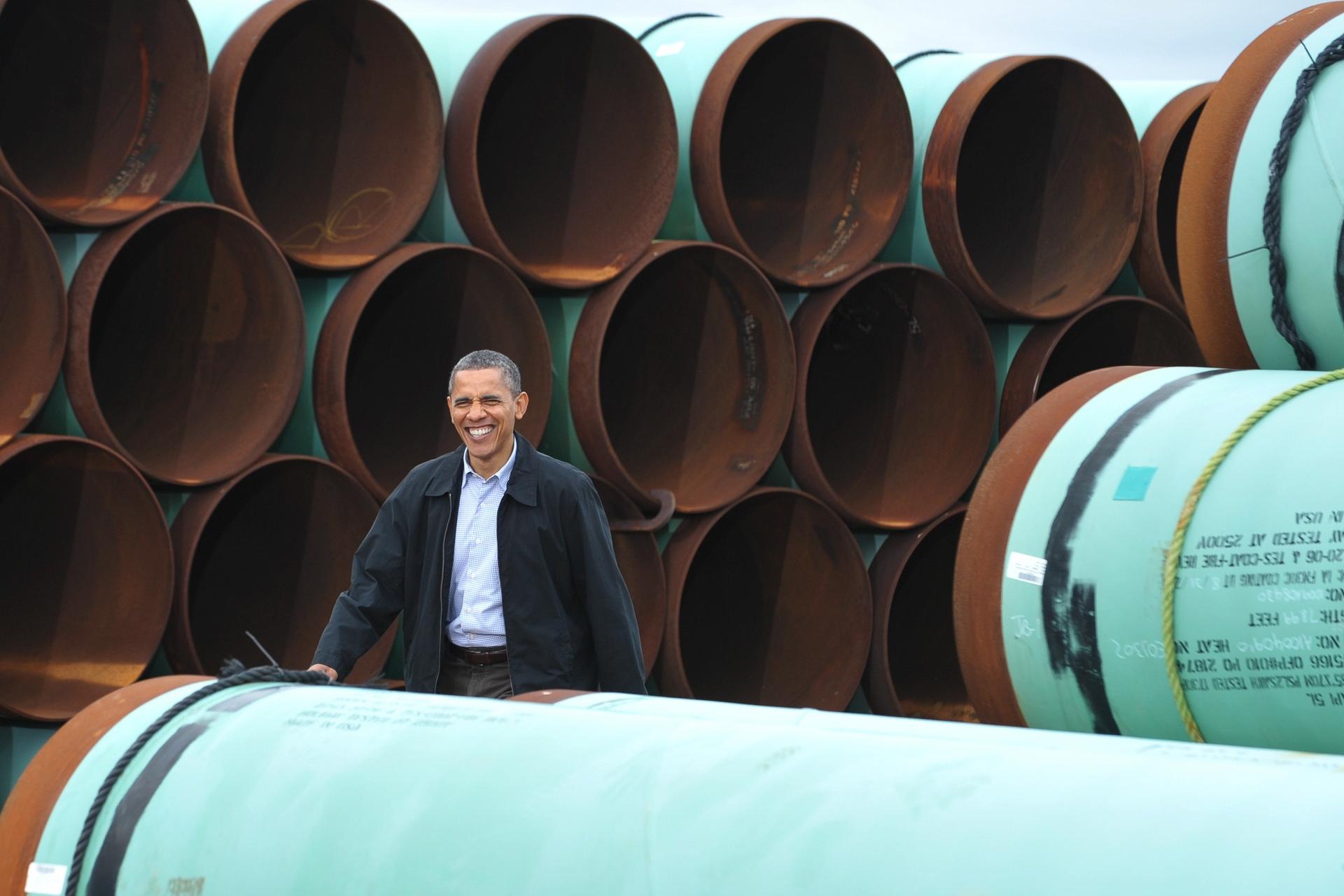Keystone pipeline will not increase US energy security
US President Barack Obama arrives to speak at the TransCanada Stillwater pipe yard in Cushing, Oklahoma. Obama spoke about the Keystone XL pipeline and his energy policies.
EAST ORANGE, N.J. — US energy independence has been a pipedream of presidents and politicians.
With President Barack Obama’s looming decision on whether to approve the Keystone pipeline, proponents are citing US energy independence, lower fuel prices, and a chance to get oil from a more friendly country as reasons to back the project.
Opponents to the pipeline have largely based their arguments on environmental concerns and long-term climate change.
What both sides of this debate have failed to question is whether this project will actually move the country towards energy security and actually lower fuel prices. This is monumental oversight because the Keystone pipeline, if built, will do neither.
Many in the debate over America’s energy future and the pipeline would do well to read a report on US energy security by the Congressional Budget Office, published in May 2012. Rather than looking at energy independence, this report examined the energy security of US consumers and businesses, or their ability to handle disruptions in the supply of energy.
Its focus on energy security is the proper frame to examine the Keystone pipeline. The report highlighted how US consumers are more vulnerable to shocks in the oil market, given that transportation is entirely dependent on this energy source. There is little consumers can do to offset any price increases as there is no easy substitute for oil or any near-term options for consumers to reduce their gasoline consumption to offset the increase in prices.
A major lesson of this report, and one US politicians often forget, is that oil and energy are global markets, whose prices are set by global supply and demand and are vulnerable to shocks.
It does not matter if the oil is from Canada or Venezuela, the same supply and demand factors that set the price on Canadian oil, are the same ones that set Venezuelan prices. The only fluctuations come from the quality of oil extracted from the region.
Building the Keystone pipeline and increasing North American oil production will still leave energy and gasoline prices dependent on other oil producing countries and global demand. This would not change even if the entire US oil consumption were to come from domestic production.
There are two reasons for this. First, other large oil exporting countries, such as Saudi Arabia, could reduce their oil production in response to increased US production. Second, lower prices at the pump would remove the incentive for consumers to reduce their use of gas in the longterm. Increased use will leave consumers more vulnerable to shocks because a shock to supply anywhere raises prices everywhere.
Even if the pipeline enables the US to approach energy independence, we will still have self-interest in maintaining stability in oil producing regions, such as the Middle East, as demand rises for fossil fuels from China, India and other developing countries.
Whether or not oil production increases in North America, rising global demand, possibly combined with lower production elsewhere, will help sustain or increase fuel prices everywhere. With the US energy and transportation sector bound to rely on oil, global supply shocks will have a detrimental effects on the US economy, no matter where the US gets its oil from.
The Keystone pipeline will do nothing to move the US away from its reliance on oil or increase its energy security. By framing energy markets in their global nature, many of the primary reasons for supporting this project fall away.
If President Obama and the government want to increase US energy security, they need to lessen the country’s reliance on oil, no matter the source. Talks about US energy independence only serve to distract from the real issue, US energy security. The only way to increase the energy security of the US is to lessen consumer and industry use of oil and gasoline; building the Keystone pipeline without these measures will only prolong insecurity.
Kevin Bengyak is a graduate student at the Whitehead School of Diplomacy and International Relations at Seton Hall University in East Orange, N.J. He specializes in international economics and development.
Every day, reporters and producers at The World are hard at work bringing you human-centered news from across the globe. But we can’t do it without you. We need your support to ensure we can continue this work for another year.
Make a gift today, and you’ll help us unlock a matching gift of $67,000!
